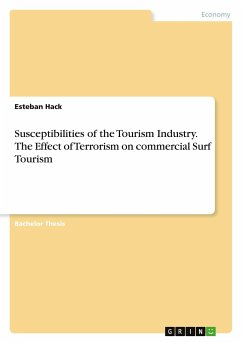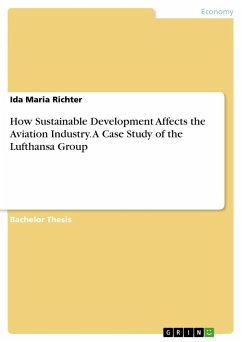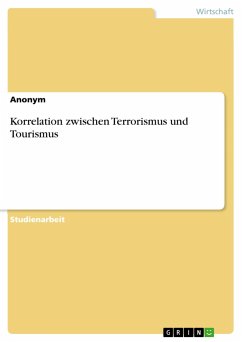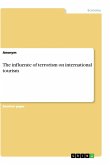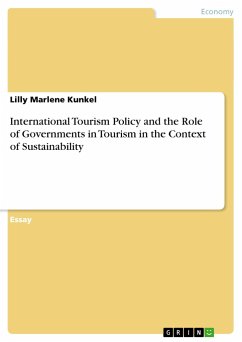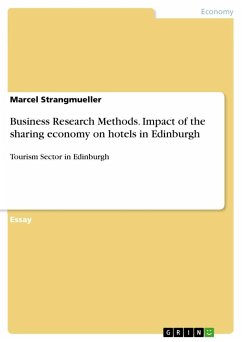Bachelor Thesis from the year 2016 in the subject Tourism - Miscellaneous, grade: 2.1, University of Plymouth (Cornwall College Newquay (in partnership with UoP)), course: Marine Sports Science (BSc Hons), language: English, abstract: The tourism industry has significant repercussions in regards to economic value to destinations worldwide but is susceptible to external shocks such as terrorism as tourist numbers follow terroristic activity causing economic damage to destinations beyond managerial control. Surf tourism is of growing economic, social and environmental value to destinations in Indonesia due to the region's abundance of high quality waves and resulting attractiveness to surfers however, it is a region frequented by terrorist activity. The aim of this paper is to investigate the effect of terrorism on commercial surf tourism as a sub segment of the global tourism industry.Data was obtained using a survey consisting of 5 closed ended questions assessing IAO variables of traveling surfers regarding the perception of terrorism as a risk influencing destination choice and travel plans. 42 usable responses were collected over a three-month period from January 7th to March 28th 2016. Results of the statistical analysis suggest that surfers demonstrate a different behaviour in comparison to other tourists and have a low perception of terrorism as a risk influencing destination choice.In fact, from the data and statistical analysis it appears that the significant reliance on the quality of waves at a destination outweighs the risk of terrorism as an influence on destination choice, therefore accepting the tested hypothesis, which stated that surf tourists do not perceive terrorism as a high risk influencing destination choice or travel plans. Suggestions for future research include a replication of this study using a larger sample size and changes to the design of the questionnaire in order to improve upon limitations and further investigate conspicuous findings of this study as well as potential links to the field of behavioural psychology.

